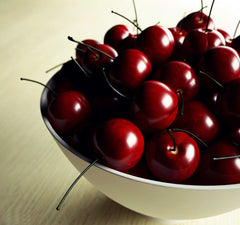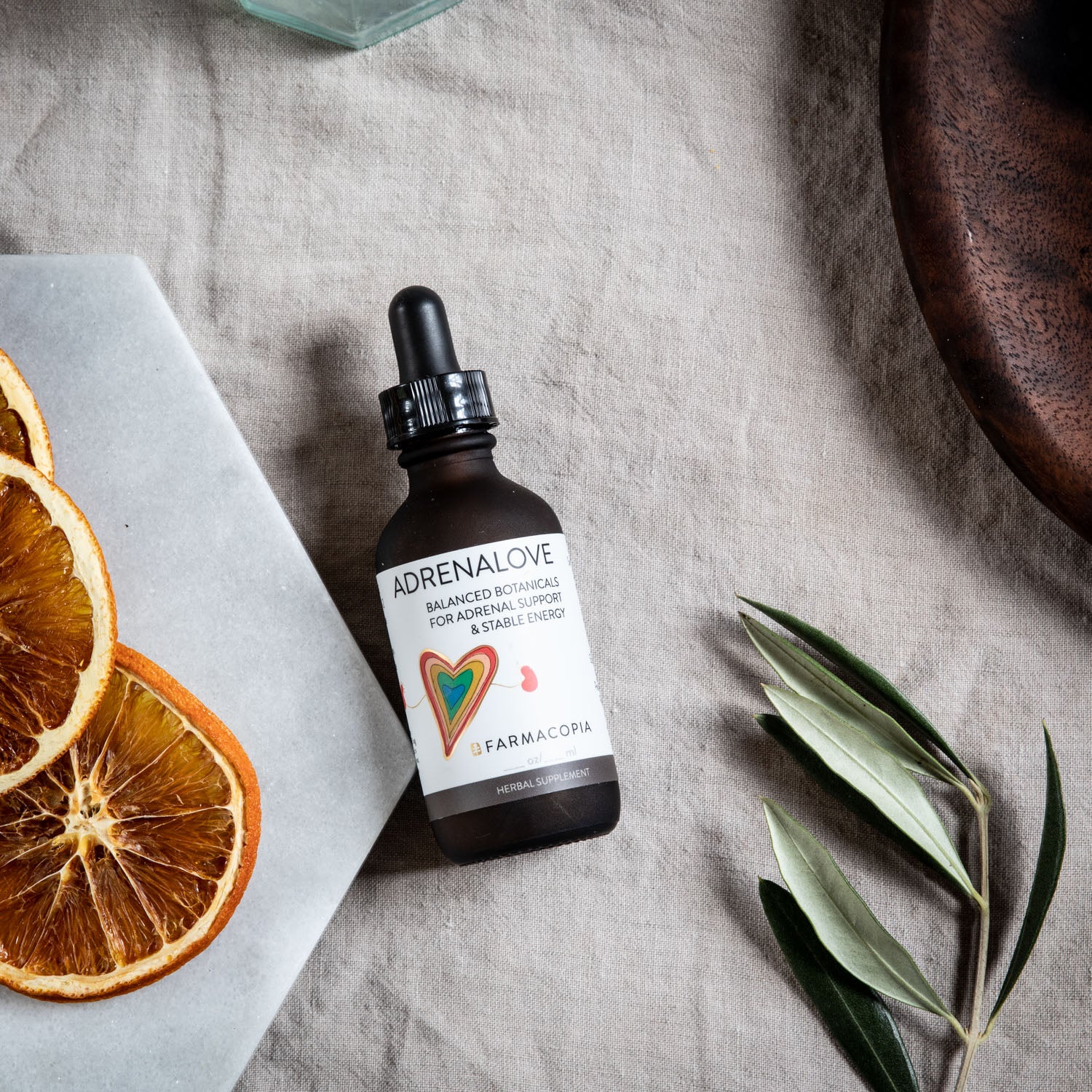 Author: Lily Mazzarella
Author: Lily Mazzarella
Summer is upon us, and we are gearing up for a favorite summertime appearance: the cherry. Rainier, Lambert, Balton, Montmornecy, and perhaps the reigning champion–Bing. These luscious, red, juicy, stone fruits have always dazzled us with their flavor and beauty, but now we have even more reason to love them: a growing body of scientific research is putting the humble cherry on the frontlines to aid with a number of common ailments, including inflammation, insomnia, muscle fatigue and capillary fragility.
Antioxidant rich: Like all bright and beautiful fruits and vegetables, cherries are high in bioflavonoids and antioxidants. Particularly studied in cherries are the high levels of the antioxidant flavonoid constituents anthocyanins, which are found in plants with red, blue and purple pigmentation. For years studies have shown antioxidants can play a role in lowering the risk of heart disease and stroke (remember the “French paradox” studies on the benefits of red wine we love so much?!) and now science is looking deeper into the other implications of cherry’s ability to lower inflammation and repair tissue.
Anti-Inflammatory: Studies show cherries have the ability to squelch widespread inflammation. Anthocyanins lower the enzyme load present in the inflammatory response, decrease uric acid, and prevent oxidants from irritating and damaging connective tissue. Anthocyanins also help repair damaged proteins in muscles and blood vessel walls–damage that can lead to atherosclerosis and retinopathy. This ability to lower inflammation can be helpful for many conditions: injury, arthritis and joint pain, gut inflammation and irritation (including ulcers). It can help decrease recovery time from regular exercise. In clinical trials, subjects reported less pain and greater mobility from taking cherry in several ways: the freeze-dried extract, juice, juice concentrate, or eating the whole fruit. Clinical trials have also shown cherry therapy to be effective in gout, arthritis, and muscle ache.
Sleep Aid: In addition to cherry’s role in aiding inflammation and muscle recovery, cherry is gaining popularity as a natural sleep aid. Tart cherries in particular have one of the highest levels of melatonin than any known plant. In a recent clinical trial, subjects were given two one-ounce servings of cherry juice concentrate per day for four weeks and experienced a shorter time falling asleep, better sleep quality, and on average, an increase in the duration of sleep time by 34 minutes.
DOSING: The preparation and dosing of cherry in scientific studies varies widely. If you have blood sugar issues, you may want to eschew the juice, and focus on fresh fruit or freeze-dried extract.
Juice: Studies have been done on 12-16 ounces of juice per day. A better choice for those with blood sugar issues or sugar cravings is organic juice concentrate–just 1 tablespoon 2 times per day will do the trick. 4 ounces of juice (or 1 tbsp of concentrate) mixed with sparkling water makes a great cocktail alternative during cleanses. The organic concentrate is a Farmacopia Favorite!
Fresh Fruit: Some studies have used as much as 10 ounces of cherry per day–which can get expensive, especially when you buy organic. Other studies (especially for gout) have shown benefit with just 10 cherries per day. When they’re out of season, pick up frozen organic cherries at Whole Foods, Trader Joe’s, or Costco.
Freeze-dried Extract Capsules: 2 caps 2 -3 times per day. Some people see benefit with just 2 caps per day, while others require up to 6 caps or more per day to get relief. Another Farmacopia Favorite!

